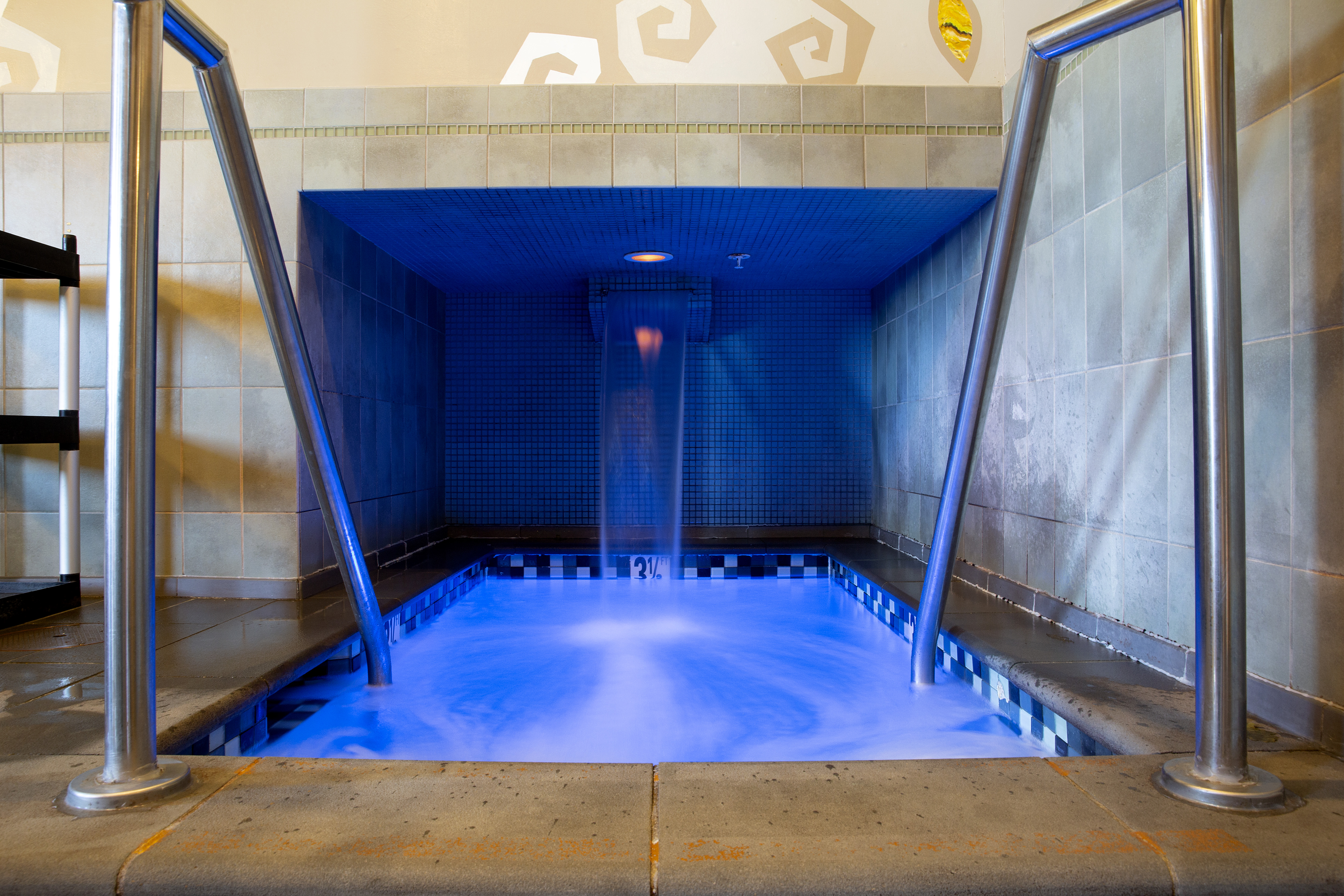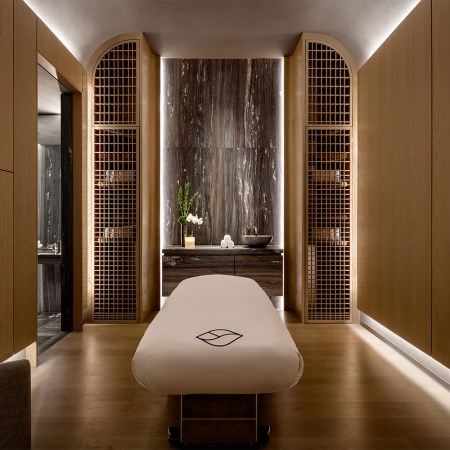Facts: Archimedes Banya is one of the best places in San Francisco. If you haven’t scheduled a flight home to SFO around a post-airport stop at Archimedes … your plan needs work.
Archimedes, like most everything else, is closed for the moment — doubly unfortunate, given that the city/state/world have rarely been in need of so much collective self-care.
Bereft, we reached out to Archimedes founder Mikhail Brodsky — and received, in return, his extensive suggestions for creating a banya-like environment in our very own homes. “Hippocrates taught us to raise our temperature and sweat, and nothing can do it like a banya,” says Brodsky. “Archimedes has the best saunas and steam rooms in San Francisco, and nothing can substitute for them. But there are things you can do for a similar effect that can be carried out at home.”
A brief history lesson Brodksy was keen that we share: “Avicenna, who is regarded as the most significant physicians of the Middle East, repeatedly wrote about the healing properties of salt baths in his Canon of Medical Sciences,” Brodsky tells us. “Avicenna believed that, in general, the bath acquires different advantages from the water in it: ‘If the water contains soda and sulfur, either it is sea, or ash, or salty — by nature or artificially, after it has boiled any of these substances, it dissolves and softens, eliminates looseness and obesity.’ Avicenna noticed that saltwater also helps from joint pain, gout, asthma, kidney disease, and improves bone fusion in fractures.”
Below: Brodsky’s suggestions for “homemade steam baths, regular baths and cold wraps, all aiming to actively stimulate your immune system and remove toxins.”
Necessary disclaimer: No one here is a doctor. Mind your own tolerance and exercise caution when experimenting with all of these activities.

Steam bath at home
“You can do this on your own, but it’s not simple. Install a strong lattice wooden cover above a big bucket (like we have in Archimedes). Pour boiling water into bucket, so that the water almost touches the wooden lattice. Cover the lattice with a towel, so that the steam does not leave the bath. Be careful! If it’s too hot, add another towel. Wrap yourself in a blanket and sit on the lattice. You will sweat. It’s useful to add a few drops of aromatic essential oil to the water. Or try this — it’s the simplest way to get a banya at home.”
Cold wraps
“If you want to quickly and effectively remove toxins from the body, try cold wraps. It’s best to do them after a warming procedure (such as the hot bath below). In this case, the wraps will also perform another task: strengthen your skin. Cool water not only lowers the elevated body temperature but also closes enlarged pores, makes the skin elastic, increases its tone, strengthens, and rejuvenates. First, wrap yourself in a damp, cold sheet — it is desirable to wrap the fabric around the body 2-3 times. The sheet should fit very tightly to the skin. The whole body (except the head) should be covered in such a way as to prevent external air from accessing it. At first, the vessels of the skin narrow, and the blood first pours from the skin inside the body. Then the body starts to warm up. Here, blood rushes to the skin and begins abundant sweating. Wet fabric pulls toxins from the body, absorbing them into itself.
After the procedure, take a warm or cool shower, wet the body with a towel, and lie down for a little. It is very useful to drink a glass of vegetable juices an hour after wrapping. Do not drink any cold liquid during the wraps.”
Hot baths
“Only do this if you’re healthy. Prepare a bath with a water temperature above 104 degrees Fahrenheit. The procedure is more rigid than a steam bath — no wonder people with a sick heart feel great in the steam room, but find it difficult to tolerate a hot bath.
During this procedure, both surface and deep-lying vessels expand, increasing blood flow to the surface of the body and decreasing it to the internal organs. Together with abundant sweat from the skin and deeper-placed tissues, this washes out harmful substances — in general, the hot bath enhances metabolism. A healthy person should not be in a hot bath for more than 10 minutes. Baths followed by cold wrapping is recommended.”
Warm baths
“Baths with a water temperature not exceeding 102 degrees Fahrenheit are the easiest for the body to tolerate. They can be taken even by people who are sick or weak. The optimal duration of the thermal bath is 10 to 15 minutes, and can be up to 20 to 30 minutes. This bath relaxes well, has a calming effect on the nervous system, helps with neuroses and insomnia and relieves fatigue and muscle tension. Healthy people can increase their time in a warm bath by up to 20 minutes.”

Cool baths
“They have a refreshing, tonic effect, as well as training the cardiovascular system. They’re useful for a weakened nervous system and improve metabolism. Take cool baths (temperature below 90 degrees Fahrenheit), depending on individual tolerance — for no more than five minutes, but also at least three. Cool baths are recommended for ‘hardening’ the body, in the case of obesity.”
Warm and hot foot baths
“You can add salt or essential oils to the water.”
Icy cold baths (and cold foot baths)
“These have an exceptional tempering effect on the body — they can refresh and strengthen, while reducing blood pressure. There are cases when using a one-minute cold bath it is possible to quickly get rid of a runny nose — an unpleasant hunk in the body, which occurs in the case of influenza and colds. Cold foot baths are a strong preventive remedy against colds, intolerance to cold.”
Salt baths
“When a salt bath is taken, blood flow in the skin is increased, metabolic processes are improved, the skin absorbs oxygen better, its quality is improved, it becomes smooth and elastic. Baths with regular table or sea salt improve immunity, the state of the hormonal system, and thermoregulation. Baths with salt quench the pain, soothe, and strengthen the whole body.”
This article was featured in the InsideHook SF newsletter. Sign up now for more from the Bay Area.






















